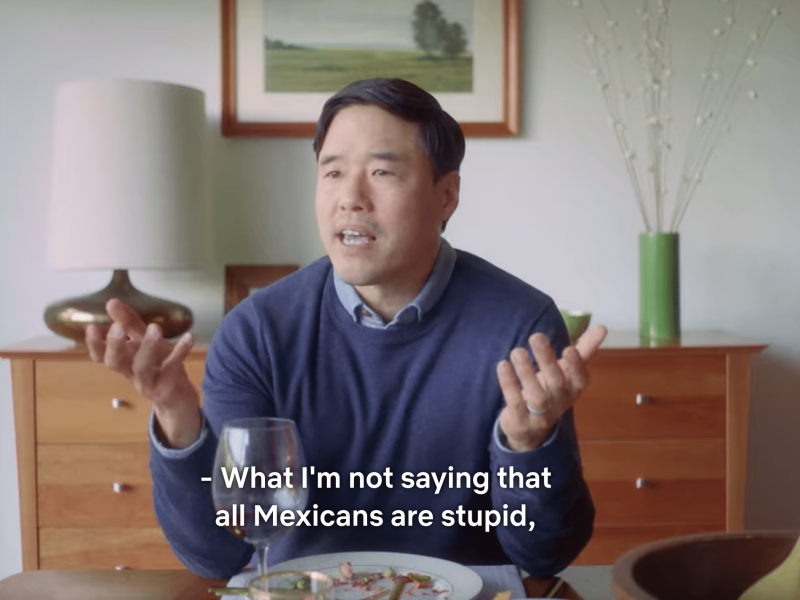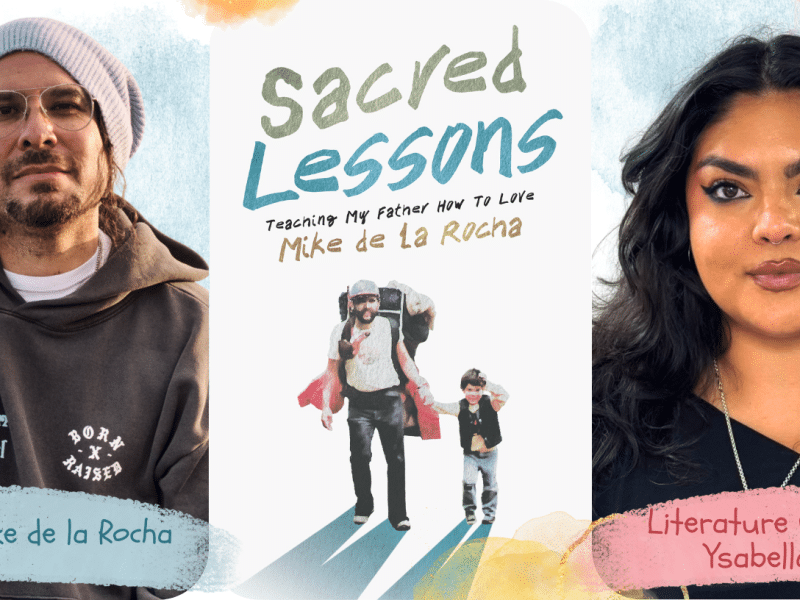Racist Moment in ‘Straight Up’ Punches Down on Latinx Community
I took a comedy writing class earlier this year. What I took away is that it’s never funny to punch down.

I love independent films with witty dialogue and Straight Up, written and directed by James Sweeney, had a lot of it. The film is a comedy that stars a bi-racial man with obsessive-compulsive disorder (OCD), Todd, who finds companionship with an equally eccentric woman named Rory, who is a struggling actor. Like most movies that portray struggling actors, it is set in Los Angeles where just under half of the entire city is Latino; 48.6% to be exact. But also like most films, there aren’t any Latinos in it.
I was lured into watching when I read in the brief description that “Fresh Off the Boat’s” Randall Park would be in it. When Latinx representation in films is so dismal, I get excited when a film centers on another POC. As is it turns out, Park appeared only for a few minutes in the middle of the movie, playing Todd’s dad Wally. But in those few minutes, I was reminded that even in 2020, scenes that depict casual racism against Mexicans and that double-down on harmful stereotypes still make it through script reads, directors, and post-production.
Todd brings Rory to his parent’s house in the typical “bring-the-new-girlfriend-home” scene that’s part of most romantic comedies. Until then, the film’s only reference to Todd’s parents is that they pay for his therapy, something we learn through the many scenes in which he debates his therapist.
Like Rory, we meet Todd’s parents at the dinner table while the four of them are discussing the pros and cons of parenthood. Park’s character, Wally, argues that smart people have a moral obligation to procreate citing that the source of the country’s problems lies with stupid people having children. Specifically, Mexicans. Here’s the dialogue:
Wally: “You know who is ruining this country. The Mexicans.”
Todd: “Okay, Dad, can we save the racism until after dessert?”
Wally: “What? I am not saying that all Mexicans are stupid. I am just saying, and there’s plenty of literature to back me up on this, there’s an inverse correlation between intelligence and fertility. Guess who is popping out the most babies?”
Rory: “The Mexicans!”
Until this scene, I was laughing throughout the movie. But casual racism is nothing to laugh about. This exchange was appalling to see especially when the man who called Mexicans rapists on national television is currently sitting in the White House planning his re-election. I took to social media using the podcast I co-host, Tamarindo, as my platform to share with others what this scene stirred in me.
Actor Randall Park, who is Korean American and from Los Angeles, responded to the call-out on Instagram.
“I totally understand how you feel! From my perspective, this is not a funny character but a tragic, racist character for the audience to dislike. I think it’s clearer in the context of the movie, but again, I understand how this clip can be infuriating. I will never hate on my Mexican brothers and sisters. But I will on rare occasions play horrible people.”
Since Park took the time to comment and defend the scene under the excuse of context, begrudgingly, I decided to continue watching to find the context that was so elusive to me.
I believe the context Park referred to is that his scene was meant to show that Todd’s parents are conservative and that they may also hold conservative views of sexuality. The scene that follows is a tender moment where Wally expresses his enthusiastic approval of Rory as Todd’s girlfriend. We don’t see Wally again. Shortly after, when Todd is thinking back about the moment with his dad, he believes that Wally would not have had the same reaction if Todd had brought home a man instead.
After the scene with Wally, the audience is clued in that part of Todd’s identity challenges lies with expectations his parents and society have of him to be a heterosexual man. And while I see how depicting Todd’s parents as conservative was important to the story, I don’t see how using racism towards Mexicans was essential to do that.
“In my head, I saw it as an opportunity to shed light on the racism that’s out there, especially within my community,” Park said further in the comments of my Instagram post. “But again, I understand how this clip can feel like it’s doing the opposite.”
It is true that racism exists within many communities. I wrote about a scene from HBO’s “Insecure” that depicts an Asian American character failing to relate to anti-Blackness. If Straight Up had followed Park’s scene with the characters pushing back on his racism, I might be more inclined to agree with his assessment of the scene as important to move the dialogue forward on racism. Instead, the characters all shrug off the abhorrent comment as if it was a typical dinner table conversation. As if it’s acceptable to reinforce harmful stereotypes about Latinos that we work so hard to break free from. Even worse, Rory seems to impress Wally with her feigned agreement when she responds, “The Mexicans” to the query “who is popping out the most babies?”
“Actually I think the characters’ response or lack of is more disappointing. The writers missed an opportunity to have the family call out his racism instead of shaking their heads and sighing,” Instagram user @quackgordon noted.
Sorry, Park, that context excuse doesn’t hold.
On the same day that I posted about Straight Up, Deferred Action for Childhood Arrivals (DACA) was trending on Twitter. Each time that happens, there is an onslaught of anti-immigrant rhetoric that comes with it. The same type of rhetoric that Straight Up reinforced in producing a racist scene that has little to do with the theme of the movie.
I took a comedy writing class earlier this year. What I took away is that it’s never funny to punch down. When children continue to be separated from their family and thousands of asylum seekers are enduring the pandemic living in the streets at the border, I see no other way to describe this scene other than as punching down. There’s just no excuse for that.



